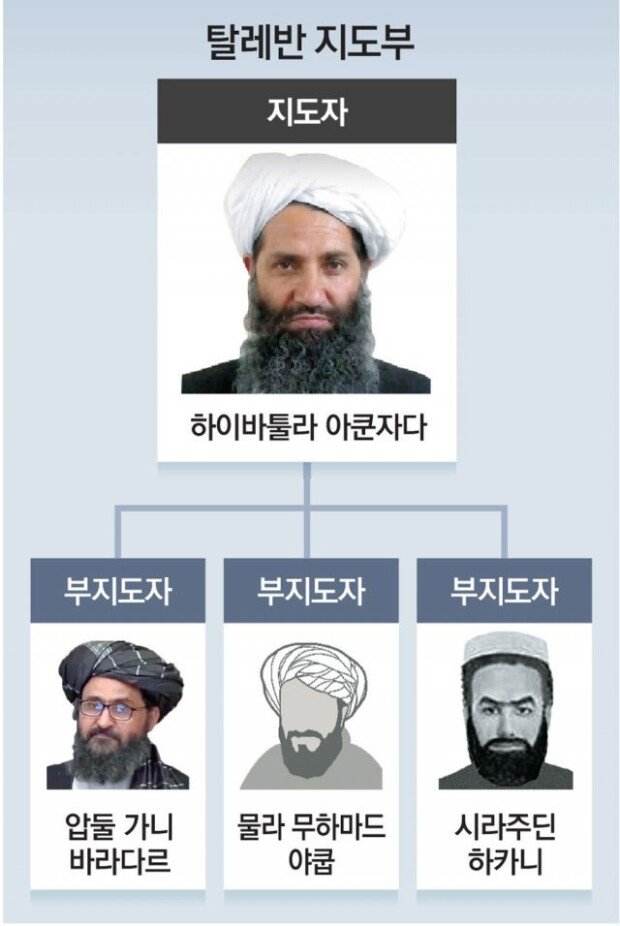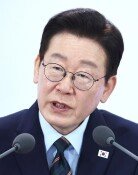Akhundzada, the new supreme commander of Taliban
Akhundzada, the new supreme commander of Taliban
Posted August. 17, 2021 07:39,
Updated August. 17, 2021 07:39

With the sunni militants grabbing power again in Afghanistan in 20 years, the leaders of the Taliban are drawing attention from the media.
According to BBC, the current leader of the Taliban is a 60-year-old Islamic scholar named Hibatullah Akhundzada. Hailing from Kandahar, the southern part of the country and the stronghold of the militants, Akhundzada has served as the decision-maker of the Taliban since 2016 for its religious, political and military affairs. Dubbed “the Leader of the Faithful,” he is a reclusive leader who rarely makes public appearances. According to The New York Times, Akhundzada is bold enough being calm even when he was held at gunpoint by an assailant during his lecture. Rumors circulated that he was killed by the coronavirus last year, but it was denied by the Taliban.
Akhundzada is flanked by three deputy commanders – Mullah Mohammad Yaqoob (31), Mullah Abdul Ghani Baradar (52) and Sirajuddin Haqqani (48). The three are handling Taliban’s military strategies, diplomatic communications, military logistics, and finance.
Among the three men, Yaqoob, the son of Mullah Mohammad Omar (1960 – 2013), the founder of the Taliban, is certainly distinguished. When Akhtar Mansour, the predecessor of Akhundzada, was killed by America’s drone attacks in 2016, it was followed by a movement to crown Yaqoob as a new Taliban leader. He declined it citing his young age and lack of battle experience, and Akhundzada took it over. Pundits say chances are that Yaqoob might soon be selected as a new leader considering his father’s reputation.
Baradar has led the peace talks with the Afghan government since September last year. He is known to have exceptional negotiation skills, leading the talks with Chinese Foreign Minister Wang Yi last year in Tianjin. Haqqani is the head of the Haqqani Network, a sunni militant organization under the Taliban. He is the son of Jalaluddin Haqqani, who spearheaded the armed conflicts against the Soviet Union during its invasion in Afghanistan.
The etymology of Taliban can be found in a word for “student” in Pashto, the most popular language in Afghanistan. In 1989, the withdrawal of the Soviet Union fueled a fierce civil war among warlords in Afghanistan, and in 1994, Mullah Mohammad Omar founded the Taliban with 25,000 students from “Madrassas,” a traditional Islam school. Osama bin Laden, the mastermind of the 9/11 massacre, held Omar in high regard, calling him “Our Leader.”




![[단독]폴란드, 韓 해군 최초 잠수함 ‘장보고함’ 무상 양도 안받기로](https://dimg.donga.com/c/138/175/90/1/wps/NEWS/IMAGE/2026/02/27/133437397.1.jpg)


